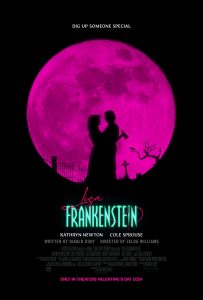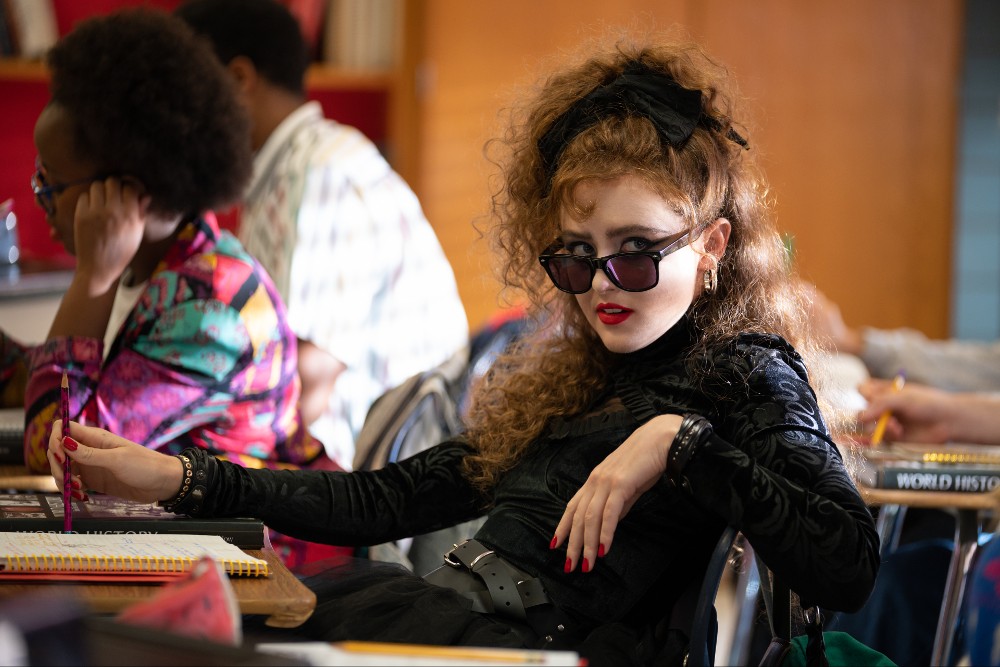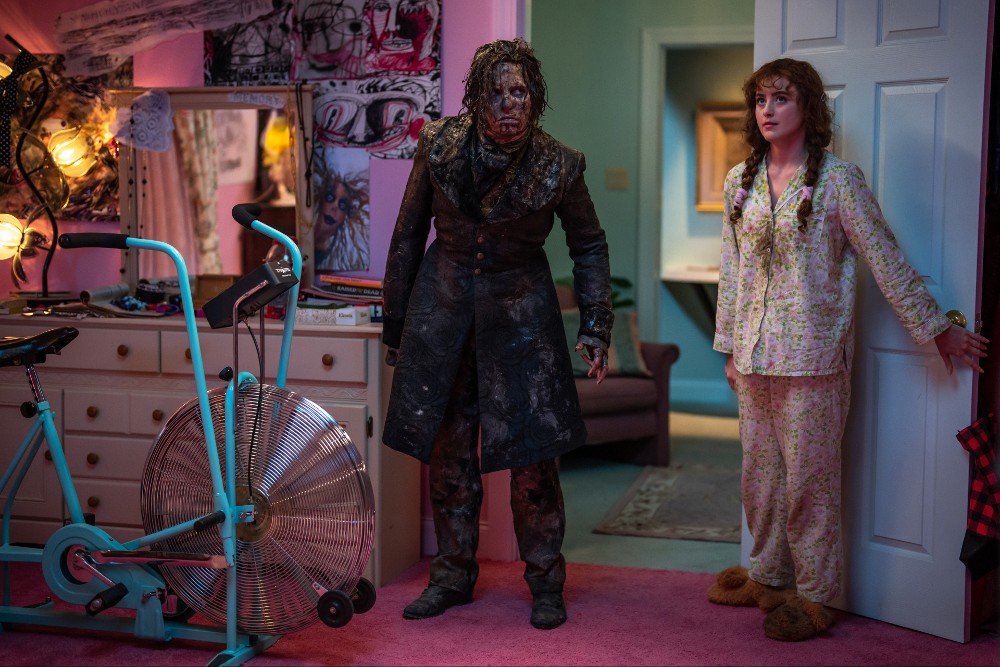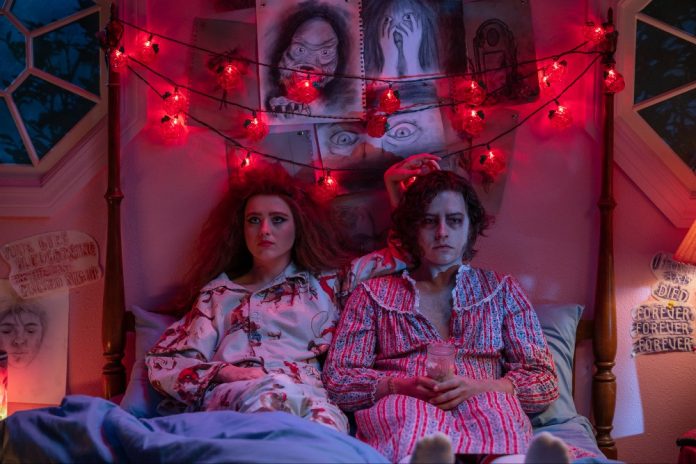Screenwriter Diablo Cody burst onto the movie scene in 2007, winning a writing Oscar for the immensely popular Juno. Though her screenplays since have preserved that edgy, witty humor and push-the-envelope style that characterized her big screen debut, that is unfortunately not the case with Focus Features’ Lisa Frankenstein, Cody’s latest foray as screenwriter.
The film, a wobbly pastiche of styles and genres, lacks the sympathetic characters that made Juno so lovable, the uncomfortable but clever themes that characterized subsequent work like Young Adult, or even the silently gripping plot that made a film like Tully surprisingly effective. Instead, the story is just like its title implies—an uncomfortable amalgamation of body pieces that not even the most electro-charged Hollywood stroke of lightning can bring to life.
Lisa Frankenstein, directed by Zelda Williams in her feature-length debut, is set in 1989, and centers on the uneasy life of teenager Lisa Miller (Kathryn Newton, who overacts the entire time). Her mother was recently murdered in a brutal attack – ultimately, a pointless plot device that sits there and goes nowhere – and her father has remarried. Her new stepmother, Carla Gugino, is inexplicably mean to Lisa, while her stepsister Taffy (Liza Soberano, the best of the bunch) takes her – Mean Girls qua Clueless style – into the world of frat parties and gossipy teenagers in the high school halls.

Lisa is a loner, an outcast, but like everyone else, she is looking for love. She frequents a local, creepy, abandoned cemetery, and one night, a passing wish that she did not really mean, brings to life a man whose appearance suggests he lived in the late 19th century. Played by Cole Sprouse, who does his best with heavy makeup and a silent role for almost the entire runtime, this monster-like creature becomes Lisa’s creation, so to speak, Dr. Frankenstein style. Notably, he is missing an ear, a functioning hand, and certain body parts that are key to Lisa’s quest for love and to lose her virginity, the quintessential Holy Grail of so many American coming-of-age films. To obtain them, Lisa and the creature embark on a killing spree—unwitting at first, perhaps—and use a tanning bed as the bolt of electricity needed to bring the creature’s new fleshy parts to life.
Needless to say, Lisa Frankenstein is not your grandmother’s Frankenstein—let alone Mary Shelley’s. The complex themes of the book, principally about the consequences of defying nature and the true origin of life or the meaning of death, are nowhere to be found in Cody’s clunky, rambling screenplay. That is of course fine, as far is it goes—popular culture has borrowed extensively from the classic novel, including this year’s heavily awarded Emma Stone film, Poor Things.

The problem is not that the film does not at all resemble the story from which it appears to have borrowed its title. The problem is that the film does not resemble anything cognizable at all. Though it purports at times to be a subversive coming-of-age story, it is nothing of the sort, certainly not in any original way. The notion of teenagers not fitting in and even committing crime to deal with that reality is as old as film itself. Here, Lisa is not even fully committed to the creature or monster, or his activities, treating him more like a creature you hide away from your parents in the closet—think Dobby in Harry Potter—then the vehicle through which to subvert an unwelcoming society.
Lisa Frankenstein also conceives of itself as a dark comedy, but few of the situations are actually funny or even entertaining. The cavalier way in which death is handled is not funny, nor is it gory or aggressive enough to reminisce of, say, Quentin Tarantino or his approach to violence. It just sort of happens, Three Stooges style, with the creature ambling about and Lisa acting both horrified and only mildly pleased. She does not lust for blood enough for the film to be a revenge-fantasy either. And, finally, it fails as a true coming-of-age story, because it gives us nothing to bond with either the main character or any of her travails, including the throwaway reference to her murdered mother.
In the end, the best element is perhaps the hapless, bubble-gummy stepsister Taffy, who Liza Soberano infuses with a tinge of callous cruelty but ultimately convincing likability. Even some of the below-the-line elements—revolving around Lisa’s late 1980s punk rock, Madonna evoking clothing and hairdos—seem carelessly stitched together, just to say it was done, rather than because anyone cared about what they meant to or how they advanced the story.

At the end of the 100-minute, tedious slog that Lisa Frankenstein becomes, one really is left to wonder why was this movie made, or who was it made for? At some point, there is a hint of girl power rebellion against oppressors (sexual and others), a theme that certainly could be derived from Diablo’s prior work, which is still a topic du jour. Even that narrative is abandoned on the operating table or, rather, added sutured grotesquely onto the already monstrous thematic creature that the film becomes.
One really is left to conclude, then, that the filmmakers themselves had no idea what the movie was about or for, and that they decided to simply sow together a collection of different themes and ideas they collected throughout the years in the hopes that an errant bolt of lightning would bring it to life. Not so.
Shelley’s story warned a weary, science-obsessed world about the folly of defying the laws of nature. Lisa Frankenstein does successful issue a similar warning: defying the basic laws of storytelling will lead to your own creation destroying you, just as the Creature did Doctor Victor Frankenstein in the original novel.
Talent: D-
Story: F
Crafts: D
Awards Potential: None
Box Office Potential: Medium
Renewability: Hopefully none, but the story sure suggests some
Overall Score: D-
Focus Features releases Lisa Frankenstein in North American theaters on February 9.
Studio: Focus Features
Principal Cast: Kathryn Newton, Cole Sprouse, Liza Soberano, Henry Eikenberry, Joe Chrest and Carla Gugino
Director: Zelda Williams
Screenwriter: Diablo Cody
Producers: Mason Novick, Diablo Cody
DP: Paula Huidobro
Production Design: Mark Worthington
Costume Design: Meagan McLaughlin
Editor: Brad Turner
Score: Isabella Summers
Twitter: @jdonbirnam
Instagram: @awards_predix



